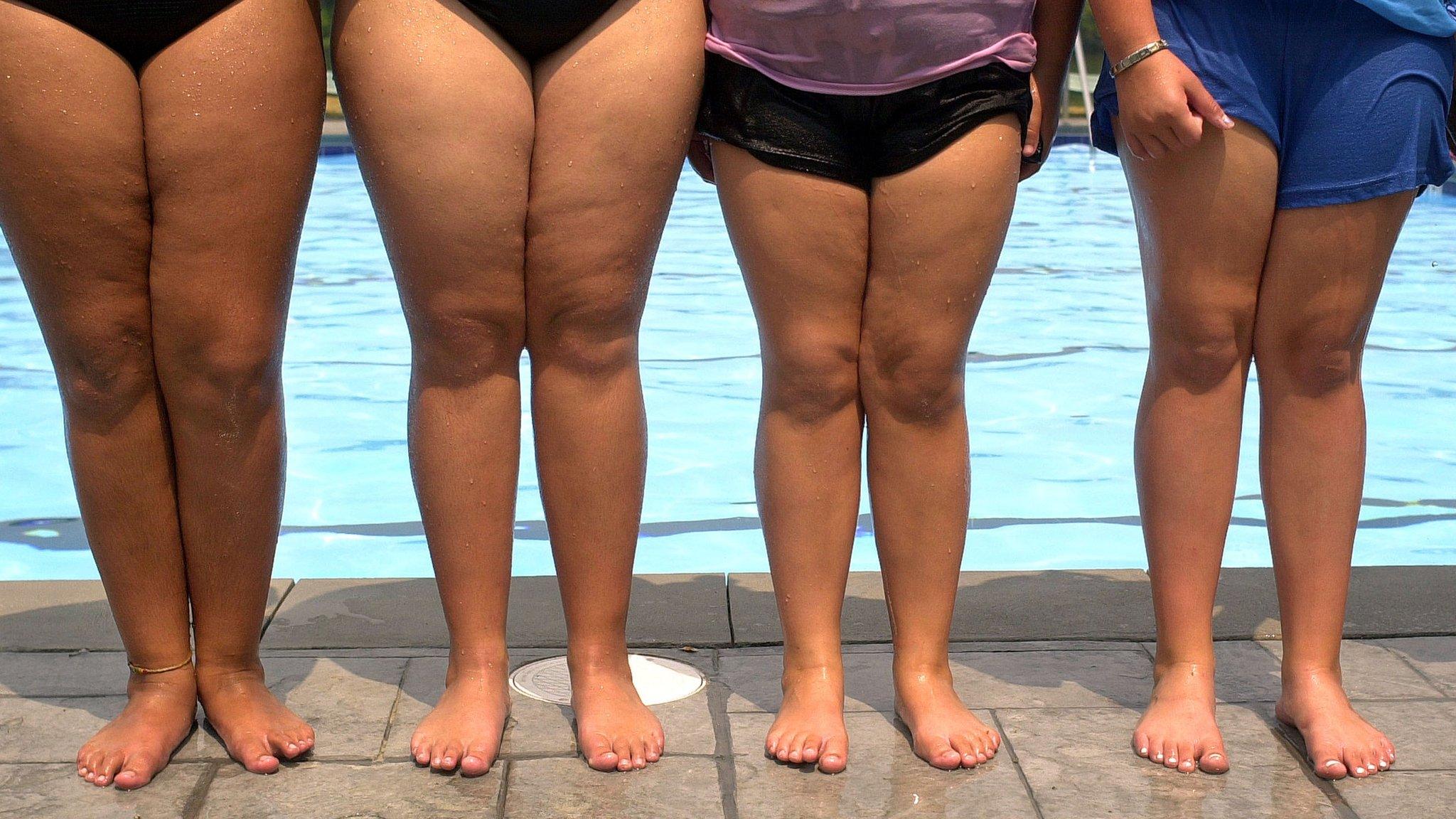Child obesity: what are the options?
- Published
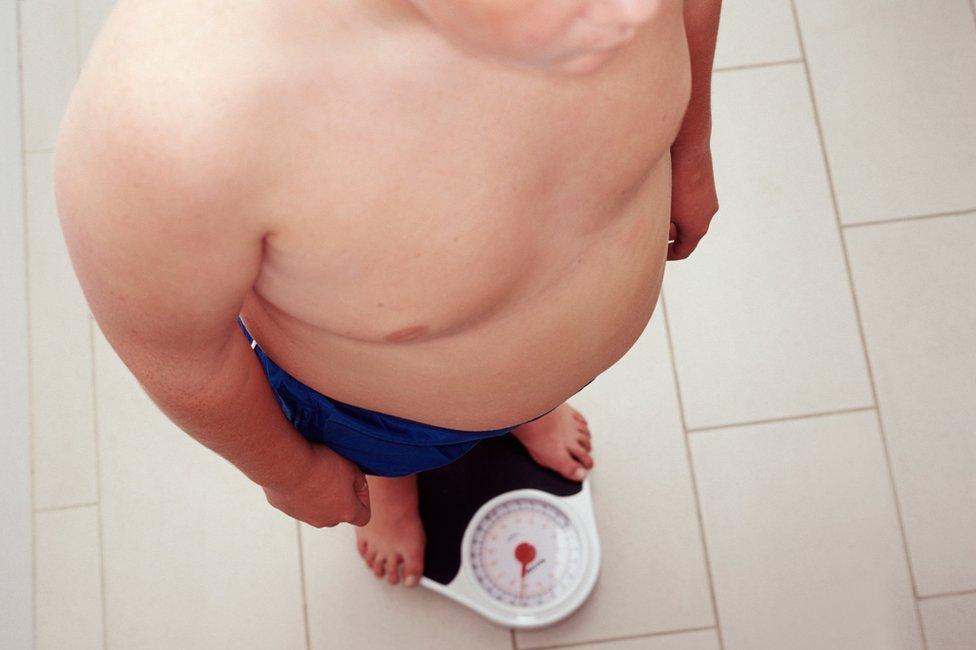
Around one in 10 UK children in Reception and a fifth of UK children leaving primary school are obese.
A Royal Society for Public Health (RSPH) report, external said healthy eating vouchers and after-school activities could be the answer.
But other people who work with parents of overweight children say different measures work better.
So what can be done to help prevent or reduce child obesity?
Simple advice
The government's main approach to tackling child obesity is through advice schemes like Change4Life, external, set up in 2009.
It provides advice and tips for families to encourage lifestyle changes - including recipes, external and activity ideas.
A government spokesman said since Change4Life was started, more than 2.7 million people have signed up and it now has more than 200 national partners.
There is some evidence to suggest current measures are working, as the number of overweight under-10s has remained at around 30% in the last decade and could be 'levelling off'.
But they only work if people sign themselves up and motivate themselves to follow the advice and make changes.
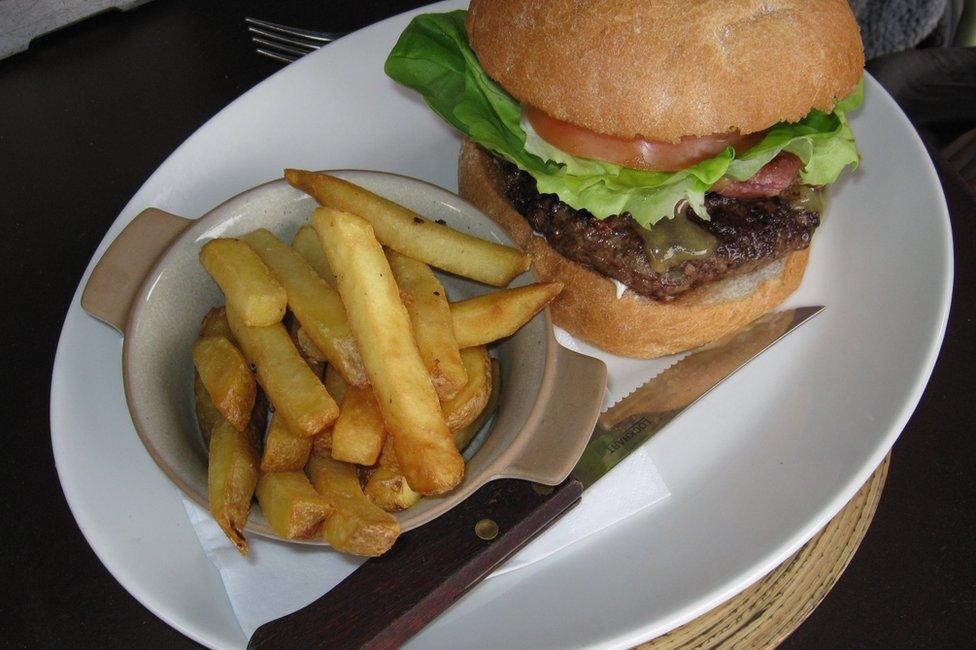
Advice schemes like the government's Change4Life could encourage healthy eating habits
Food vouchers
Healthy eating food vouchers could be given to families with overweight or obese children, to give them an incentive to buy more fresh food like fruit and vegetables.
The RSPH suggested this could be operated in a similar way to the government's Healthy Start, external means-tested scheme for pregnant women and mothers with children under four.
They said the voucher scheme could be funded by supermarkets' social responsibility programs to reduce the cost to government.
Cookery skills workshops
Some community organisations who work directly with parents of overweight and obese children say there is little point in giving families food vouchers if they don't know how to use the ingredients.
This approach has won supporters such as Jamie Oliver, who runs Ministry of Food, external outreach centres in the Midlands and North East of England.
At the Friendly Food Club, around 300 low-income families in Dorset, Wiltshire and Hampshire have been helped by Tony Gibbons to cook tasty and healthy meals through free workshops funded by councils, housing associations, charities and even football clubs.
He said community-led cookery workshops are a way of giving families skills which can be passed between generations and neighbours to inspire long-term results.
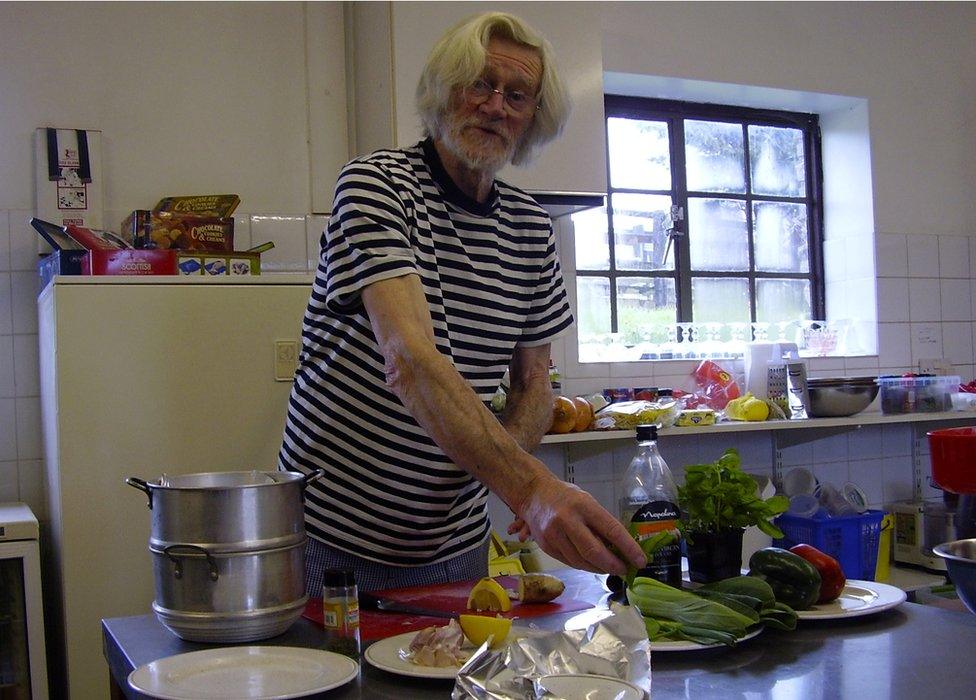
Tony Gibbons from the Friendly Food Club believes cooking skills are key to reducing child obesity
During the past 10 years he has worked with everyone from young mums to children who have never eaten vegetables, in obesity 'hotspot' areas.
These include places like Weymouth and Portland in Dorset - where last year the National Child Measurement Programme, external revealed more than a quarter of reception pupils and almost a third of year six pupils were overweight or obese.
He said the families he work with are often unaware of government schemes like Change4Life.
"I work predominantly with groups in social housing who are totally against government interference anyway. The answer is to get inside the parents' heads and show them that there are healthy foods which nice to eat, that aren't all related to being 'on a diet'," he said.
Alongside practical cookery workshops, Mr Gibbons goes shopping for supermarket deals with the families and shows them how to use all the food in their cupboards.
He said it gives the parents and children skills so they can regularly include fresh food like fruit and vegetables in a wide range of meals.
"It's about giving them confidence to make something for the first time, trying to do it on a peer level and working with people who will then go and talk to their neighbours about it," he said.
Exercise
How much exercise should children do, and which kinds of exercise are the best in forming long-term healthy habits?
Some schools have already taken on the challenge of getting children to move more, through walk-to-school buses or after-school sessions like dance classes.
In Stirling, Scotland, a pioneering teacher helped set up a 'daily mile' scheme to ensure all the pupils run or walk a mile every day.
Other groups are targeting parents as well as their children with informal exercise sessions. In Somerset, free family walks are being offered through a partnership between South Somerset District Council and Walking for Health, external, England's largest network of walking schemes.

Casual exercise involving all the family, like walking, can help children's health
As well as offering 'buggy walks' for mums children, they are setting up activities for the whole family to introduce into their weekly routine.
The walking sessions has been popular and last year demand rose by 40%, with around 8,000 people taking part.
"The walks are free family exercise where parents can also socialise," said Charlie Coward, healthy lifestyles officer at the council.
"For children, it's introducing a healthy but informal activity like football, cycling or walks rather than structures PE or the gym because as they get older, confidence drops off.
"Family activities normalise that behaviour so children carry it through to later life."
- Published10 November 2015
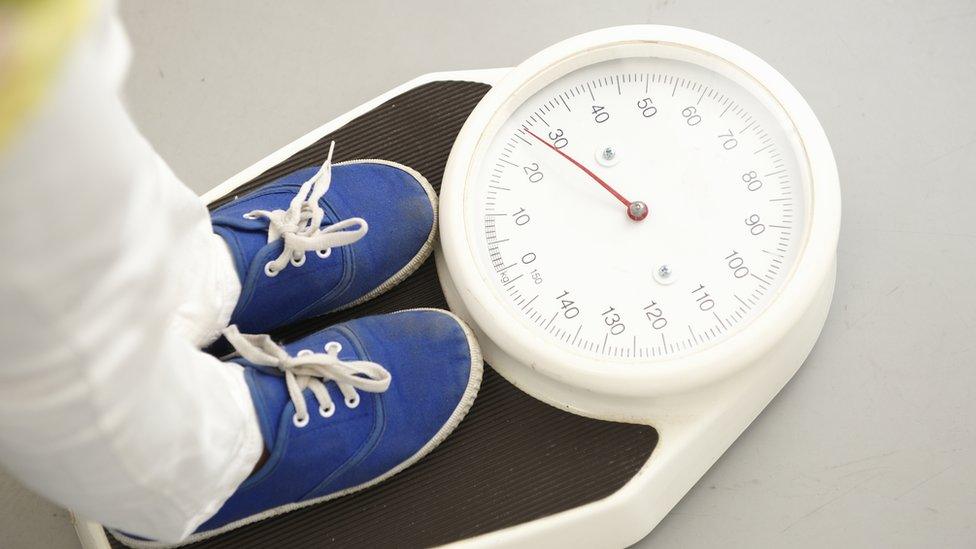
- Published30 March 2015
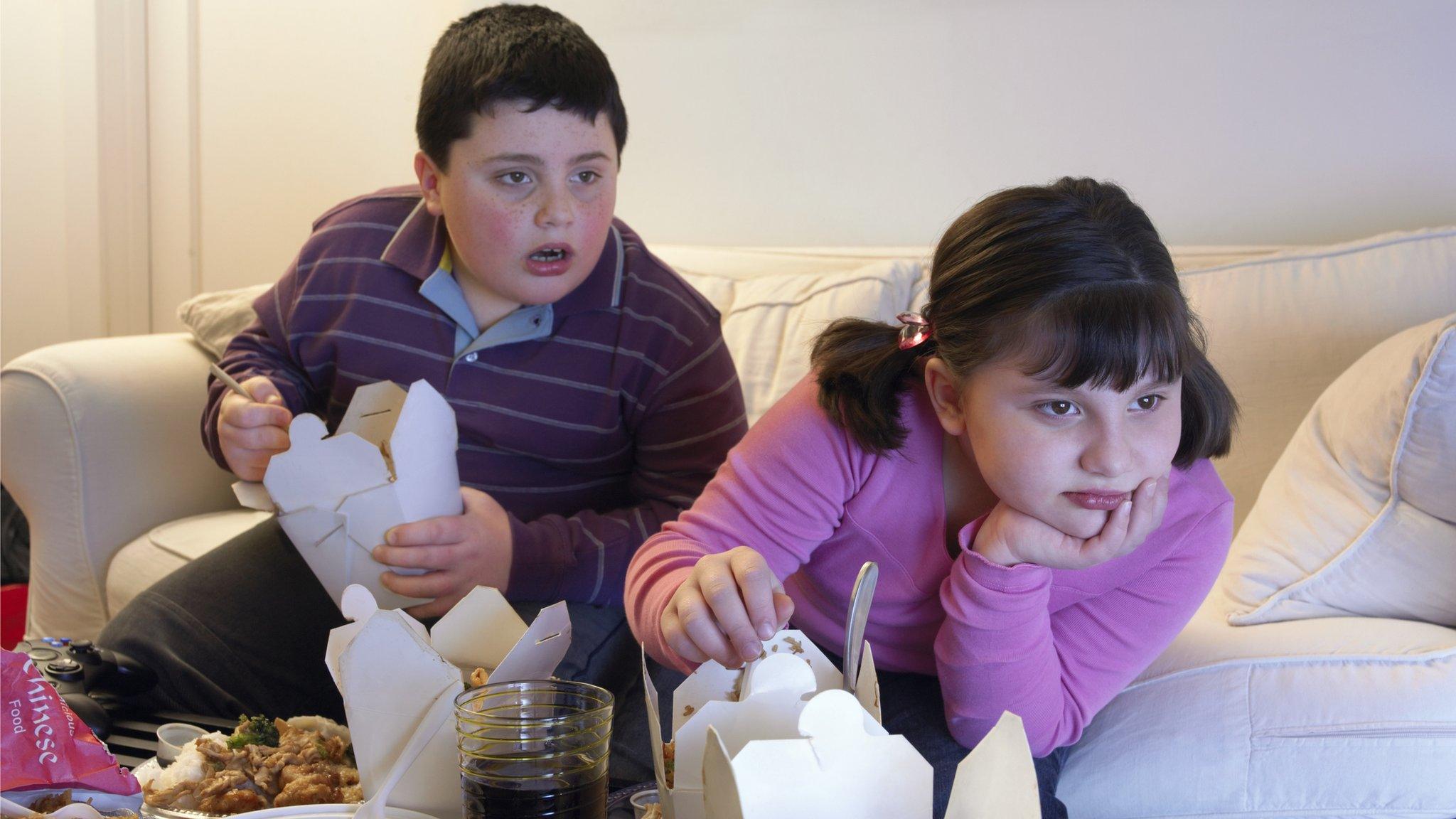
- Published26 September 2012
